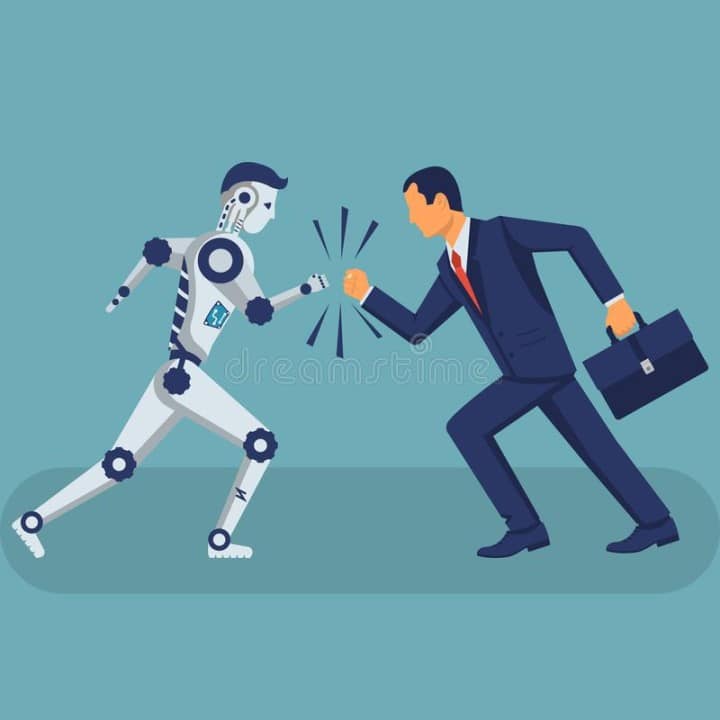In recent years, the rise of AI technology has triggered a pervasive fear across industries and professions: will AI take my job? This question has kept many people up at night, anxiously pondering their job security in an increasingly automated, artificially intelligent world. While it’s undeniable that AI is transforming certain tasks and even entire job roles, it lacks essential qualities that make humans indispensable in the workforce.
Here are four ways humans are infinitely superior to AI in the workplace:
- Emotional and Interpersonal Intelligence: While AI systems can analyze data and perform tasks with remarkable efficiency, they are incapable of truly understanding and navigating the complex web of human emotions. Fundamentally, humans have emotional and interpersonal characteristics that AI will never be able to replicate. In roles that require empathy, compassion, and nuanced interpersonal skills—competencies required of most professions—humans lead the charge.
- Creativity and Imagination: Human creativity is boundless, fueled by imagination and the ability to think beyond established boundaries. AI, on the other hand, relies on data patterns and algorithms to come up with solutions, solve problems, and complete a task. It cannot replicate the depth of artistic expression, the emotional resonance of a heartfelt story, or the innovative spark that leads to groundbreaking discoveries.
- Context and Common Sense: AI operates within defined parameters and relies on the data that feeds it. It struggles to comprehend context and is unable to apply common sense in unfamiliar or unpredictable situations. The ability to adapt, think critically, and act based on context-aware decision-making is unique to humans.
- Ethical Decision-Making and Intuition: Making ethical decisions often involves a deep understanding of human values, morals, and the ability to weigh complex ethical dilemmas. AI is devoid of consciousness; it cannot make intuitive ethical judgments or navigate morally ambiguous situations with the same finesse as humans.
The Caveat
While AI is not likely to replace humans, humans who embrace and adapt to AI will replace those who don’t. AI is here to stay, and its ability to transform operations and streamline processes is undeniable. Those who view AI as a powerful tool, learn how to use it to boost their professional skillset, and integrate it into their work will out-shine, out-perform, and out-pace those who view it as a competing force.
AI can be a catalyst for new product development, process improvements, and novel solutions to complex problems—but only if used in conjunction with human intellect, emotional intelligence, and intuitive judgment. The synergy between AI’s analytical prowess and human ingenuity is where true innovation and progress flourish.
The fear of AI taking jobs is a valid concern—and one we’ve likely all had at one time or another. And while AI can automate tasks and generate data-driven insights, without human intervention, there are significant limits to its power. By recognizing the complementary nature of AI and human capabilities, you can harness the full spectrum of possibilities, propel your career to new heights, fuel business growth, and foster profound innovation.
For more ideas about how your IT team can leverage AI to achieve greater professional success while powering your company’s success, contact us here or email me directly at Sanjay@j2-solutions.com.
